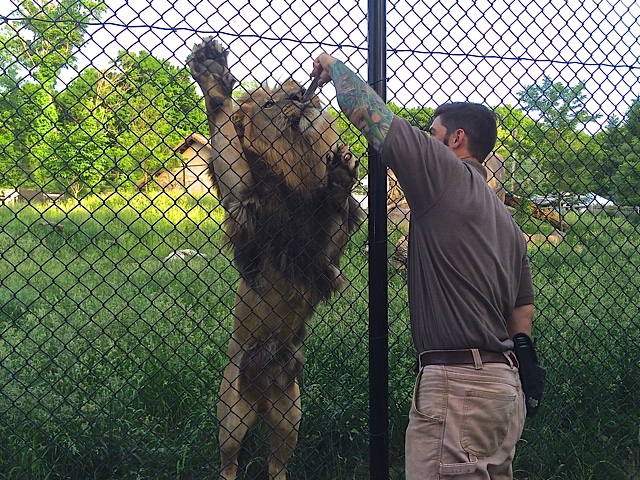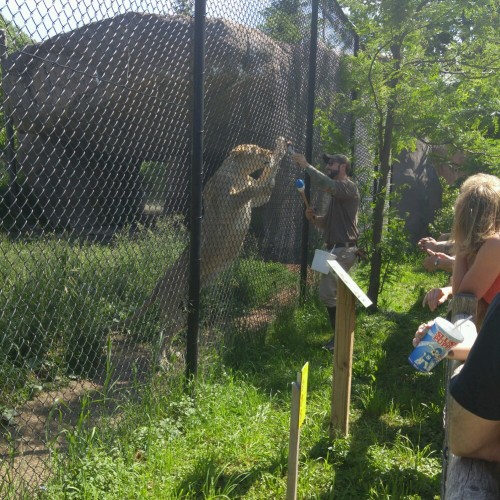This summer, for the first time, guests at Seneca Park Zoo are able to observe a training demonstration with our African lions! Our pride is made up of three adults: “Chester” our male and “Zuri” and “Asha,” our two beautiful lionesses. These three have always taken part in a training program for husbandry: behaviors that allow the animals to take part in their own health care by voluntarily allowing physical examinations and even vaccinations. For the first time, the lions are working with their keepers along the front fence, giving guests an up close look at them and their intelligence.
It is important when working with any animal to get to know it in terms of its species’ specific behaviors, as well as its individual personality. Much like students in a classroom, one animal may pick up on a behavior very quickly, while another animal will require a completely different approach to training the same behavior. Patience and problem solving skills are essential!


This holds true to our three very unique lions. Chester is very food-motivated, sometimes awaiting his next treat before finishing the one he has just received. If he is ever momentarily confused, however, he can easily become frustrated. For this reason, his sessions are tailored to be quick, with each behavior being highly rewarded and new behaviors being divided into small steps rewarded frequently along the way. This allows him to be successful and remain motivated to participate throughout each session.
Asha, our smallest female, is also incredibly food-motivated and very excitable–to the point where she has trouble concentrating on her trainer! Her sessions consist of being rewarded for remaining calm and focusing on her trainer’s movements. Asha simply remaining calm is treated (and rewarded) as a behavior in itself. We focus on the positives!


No matter how long our keepers work with a species or an individual animal, there is always something new to learn. Make sure and stop by to see our African lions and training demonstrations, and experience these amazing creatures up close!
–James Weinpress, Zoo Keeper/Elephant Handler








